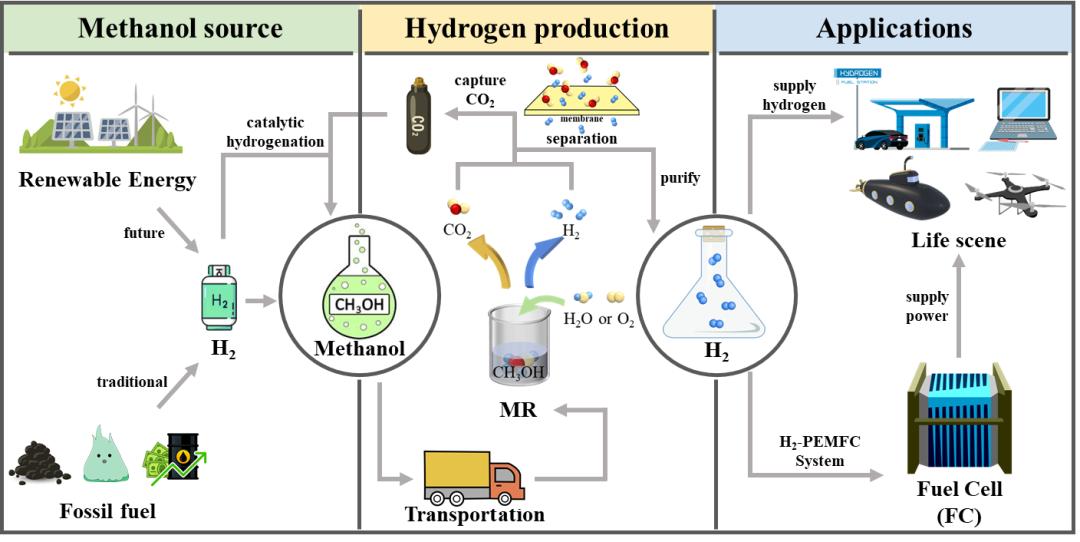What Are You Looking For?
Methanol reforming hydrogen production technology
Methanol reforming hydrogen fuel cell uses methanol aqueous solution as fuel, converts methanol aqueous solution into hydrogen mixture through reformer, and outputs electrical energy in proton exchange membrane fuel cell reactor reaction. The gas on the incomplete reaction will oxidize, providing heat for the front-end methanol reforming reaction. The technology has the advantages of immediate production and use of hydrogen, high efficiency of fuel energy conversion and no harmful gas emission.

Methanol reforming hydrogen production technology technical advantages:
1.High energy conversion efficiency: methanol reforming hydrogen fuel cell is 40%-46%, higher than the conventional diesel engine 25%-28%;
2.fuel energy density: the energy density of methanol aqueous solution is about 3kWh/L, which is 1.25 times that of pure hydrogen at 70MPa;
3.High energy security: The "Safety Comparison of physical and chemical Characteristics of fuels" published by the US Department of Energy shows that the overall risk score of methanol is low;
4.Low CO2 emissions: methanol fuel only emits 0.53kg CO2 per 1kWh of energy output, which is less than half of the emissions of gasoline fuel;
5.Clean fuel and abundant sources: methanol can be produced from biological resources such as straw, and China's total methanol production capacity accounts for more than 60% of the world;
6.Low power generation cost: calculated at 2000 CNY/ton of methanol, the power generation cost is about 0.9 CNY /kWh, which is lower than the cost of diesel generators and high-pressure hydrogen fuel cell power generation;
7.Low operating noise: the noise of power generation is less than 60 dB;
8.Can be started normally in -40℃: it has been realized to start autonomously at -40℃, and the waste heat of power generation can be used to heat the lithium battery, so that the lithium battery can work normally under low temperature conditions. ste